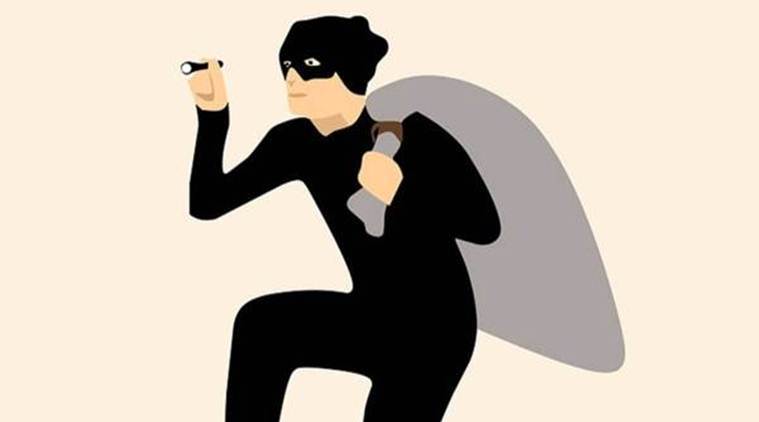 While police action in the last few years had brought down the number of chain snatching cases considerably, it took Covid-19 pandemic and the resultant lockdown to stop the crime altogether. (Representational)
While police action in the last few years had brought down the number of chain snatching cases considerably, it took Covid-19 pandemic and the resultant lockdown to stop the crime altogether. (Representational)
It is a statistic that would have made any Mumbai Police commissioner proud had the circumstances been normal. In April, the 94 police stations across Mumbai did not report a single case of chain snatching, which has perennially been a headache for the police. While police action in the last few years had brought down the number of chain snatching cases considerably, it took Covid-19 pandemic and the resultant lockdown to stop the crime altogether.
Another type of crime that has drawn a blank since the lockdown is dacoity — where five or more persons commit a robbery – not a single case has been reported so far.
While the latter half of March was spent under lockdown, the city spent April entirely under prohibitory orders. The statistics show that in April, eight murders were reported in the city, including two double murders in Govandi. Both the murders – in
Sewri and Govandi – were the result of petty domestic squabbles between two groups residing in the same locality.
While the Sewri murders took place as the family of the deceased would sit in front of the victims’ house chawl, in the Govandi case, the deceased were killed over putting up a water dispensing kiosk.
An officer from Govandi police station said, “With everyone at home in chawls and houses not big enough to accommodate them, many stay outside. This has led to several fights among local residents over petty issues.”
There were 17 robberies in April as compared to 80 in February. As against a robbery (where the accused causes or attempts to hurt a victim), theft cases (no such harm is involved) dropped to 34 in April from 483 cases in February.
“Usually, theft cases take place where thieves take advantage of the crowd to flee with victim’s bag or phone. The absence of crowd explains the numbers going down,” a crime branch officer said.
Further, statistics show that 66 break-ins were reported in April, while the corresponding figure in February was 142. Several such cases involved burglars taking advantage of liquor and jewellery shops being shut with no security personnel on guard. Break-ins were also reported at liquor and grocery shops – even amul butter was stolen.
Shops that have valuables but are shut is a major area of concern. An officer from south Mumbai said that in areas like Zaveri Bazaar, they have ensured that police patrolling is more frequent, especially at night.
A total of 84 motor vehicle thefts were recorded in April as compared to 202 in February. “We have had several cases of autorickshaws, bikes and cycles being stolen. Many of these vehicles were parked on the road and with no one to look after them, they became an easy target,” an officer said.
When it came to crime against women, statistics show that 89 cases where registered in April as compared to 559 in February. Of the cases registered in April, 17 were rape cases with 12 of the victims being minors.
Moreover, 36 cases of outraging the modesty of women, nine cases of intentionally insulting the modesty of women, four cases of dowry related physical and mental harassment and one case of harassment leading to suicide were reported in April.
Nandini Sardesai, former head of sociology department, St Xavier’s College, said: “Alot of angst is building up among people, leading to domestic violence as well as child and elderly abuse. People are anxious and they are looking for someone to vent their frustration… Those around – like family members and neighbours will bear the brunt.”
She added, “The lockdown will leave social scars, like children being witnesses to domestic abuse.”